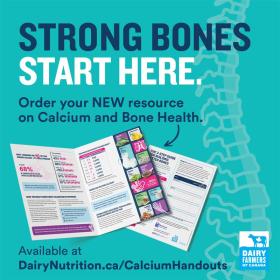
Featured Article
DairyNutrition.ca is specifically designed for health professionals.
Not a health professional? Please visit dairyfarmersofcanada.ca or whatyoueat.ca
Welcome to Dairy Nutrition, the most comprehensive and up-to-date source of scientific information on the role of milk products in nutrition and health. This site is brought to you by dietitians at Dairy Farmers of Canada.